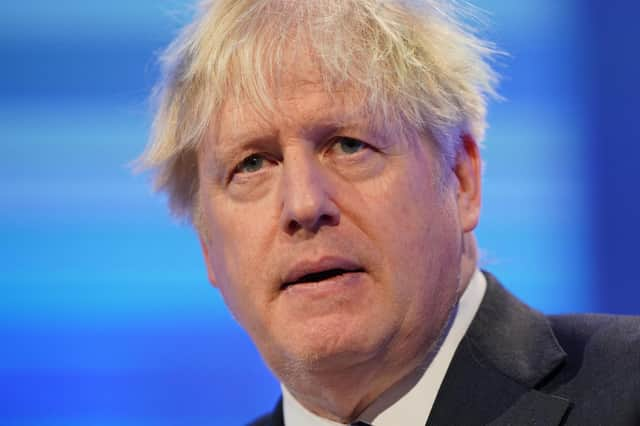Boris Johnson's handling of the early days of the pandemic has come in for further questioning


Martin Reynolds, a former top aide dubbed ‘Party Marty’ due to his role in the partygate scandal, was the key witness as he faced questions about WhatsApp communications, a lack of preparation and the culture inside Downing Street.
At one stage, he said that Mr Johnson did “blow hot and cold” on various issues while at another he acknowledged concerns about “macho behaviour” and “misogyny” in the top-level management of the crisis.
Advertisement
Hide AdAdvertisement
Hide AdThe former principal private secretary also pointed to a “systemic failure” to prepare for the pandemic as he appeared to acknowledge that the realisation of the scale of the disaster had come “late”.
Taking questions from Hugo Keith KC, lead counsel to the UK Covid-19 Inquiry, he was asked about a 10-day spell in February 2020 where there “were no communications by email, by Cobra, by boxed notes, with the prime minister during that 10-day period on coronavirus”.
Mr Reynolds, who initially said that he could not recall whether there was any “urgent business” during that period, was told by Mr Keith it was half-term.
The senior civil servant faced repeated questions about whether Downing Street and the Cabinet Office were slow to respond to the impending crisis, as scenes and reports of overwhelmed Italian hospitals began to be broadcast in the UK.
Advertisement
Hide AdAdvertisement
Hide Ad“The fact we got into that position is a result of a systemic failure and a failure of the people who are really tracking the situation most closely,” he said.
He accepted that government protocols were “inadequate” and “grossly deficient”, while also pointing to the “unusual dynamic” in Downing Street during that period and the influence of Dominic Cummings.
Mr Reynolds offered a picture of a government that, after Mr Johnson's 2019 general election, was “very different” and acknowledged that there had been a “bedding down of new working arrangements”.
“There was a sense that the government had a five or 10-year time horizon to look at and there was a really strong focus on the forward agenda,” he said.
Advertisement
Hide AdAdvertisement
Hide AdMr Reynolds also spoke about the “unease” regarding a so-called “shitlist” reportedly drawn up on civil servants, while also describing Mr Cummings as “the most empowered chief of staff Downing Street has seen and was the person whose writ ruled”.
Mr Cummings will appear before the probe today, with former Number 10 director of communications Lee Cain's evidence session also delayed until today.
Elsewhere it emerged that the country's top civil servant Simon Case – in a WhatsApp exchange with Mr Reynolds –- said Mr Johnson was “mad” if he did not believe his private WhatsApp messages would become public as part of the Covid inquiry.
The extent and nature of decision-making through the messaging app has become a key plank of Baroness Heather Hallett's probe, with the comments about Mr Johnson made in exchanges between Cabinet Secretary Simon Case and Mr Reynolds.